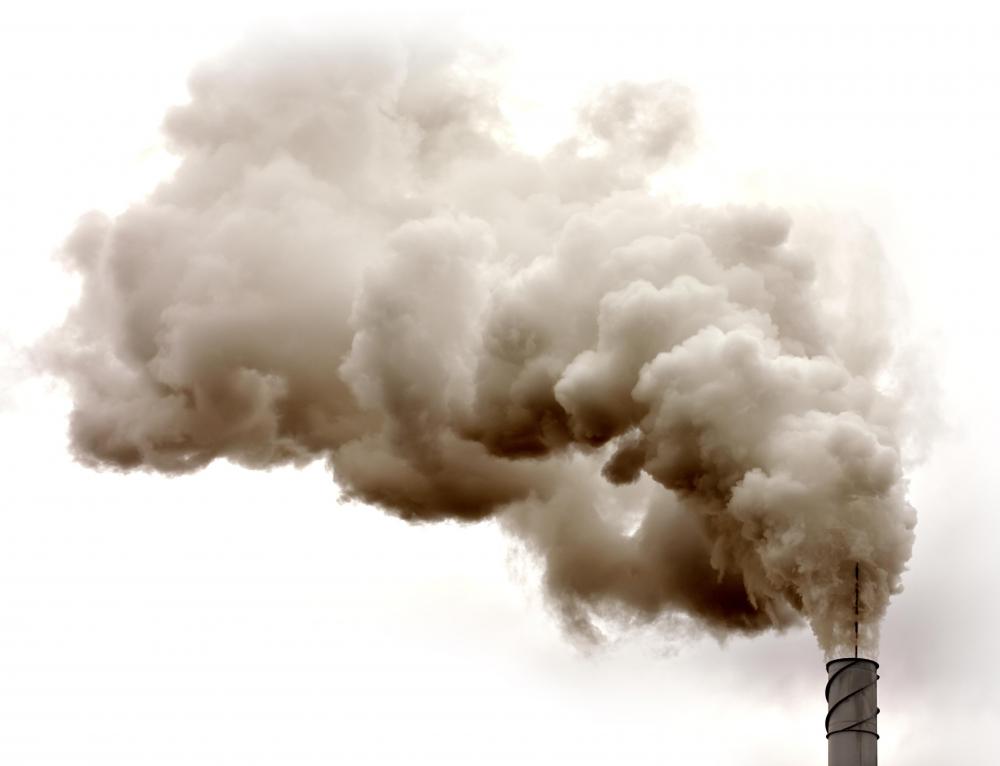At WiseGEEK, we're committed to delivering accurate, trustworthy information. Our expert-authored content is rigorously fact-checked and sourced from credible authorities. Discover how we uphold the highest standards in providing you with reliable knowledge.
What is Environmental Economics?
Environmental economics is a relatively new field of economics that looks at environmental issues in relation to economic development and sustainability. Environmental economics looks a lot at environmental policies in countries, and how they impact the local and global economies, either positively or negatively. Environmental economics is generally viewed as a form of progressive economics, trying to account for various forms of market failures to better model markets in the future and lead to more widespread gains among people.
One of the cornerstones of environmental economics is examining various causes of market failure. A market failure is said to have occurred when resources are not distributed in the most efficient manner, usually because of imperfect knowledge among the members of the market. The problem, then, is said not to be with the free market concept itself, but with the limitations of human understanding of market forces. Ideally, environmental economics views a healthy market as functioning such that all resources are distributed in such a way that they provide the greatest benefit to society; when this does not occur, the market can be said to have failed.

One key cause of market failure as seen by environmental economics is a misuse of common property. This was perhaps best elaborated in 1968 by Garrett Hardin as the Tragedy of the Commons. Simply put, the tragedy is that even when it is in everyone’s best interest to use a resource reasonably, ensuring it remains around to deliver yields to everyone, a small handful of individuals can destroy the resource by acting out of greed. As technological development has increased, a number of finite commons have become apparent that were once viewed as infinite, and environmental economics therefore looks at them as potential sources of tragedy. Air, for example, is a common property, shared by all people of all nations. One nation, however, can emit large amounts of pollution, thereby damaging the common property for all nations, even those that reaped no economic benefit from the destructive behavior of the single nation.

Another cause of market failure from an environmental economics perspective is a failure for markets to take externalized costs into account when determining a market value. The air pollution discussed above, for example, may be emitted without adding any cost to the product it creates, thereby making the pollution functionally left out of the market’s price determination of a product. Therefore, a product produced without pollution and a product produced with pollution may find the same market price. Although it may cost more internally, in the form of money, to produce the product without pollution, however, the actual costs may be much greater for the polluting product. The long-term costs in terms of health, clean-up, and environmental aesthetics from the pollution can make the real cost much, much greater, but currently the market has no way of expressing that larger price.
One of the big missions of environmental economics is to better internalize external costs so that the market can react appropriately. The theory is that a sane market, which internalizes all costs, will consistently act in accordance with the greater good of society. A failed market, however, will often act directly against the needs of society, and environmental economics tries to highlight these failures so that nations can implement regulation to better steer the market. Things such as carbon capping and trading carbon credits are one example of how an externalized cost, in this case pollution, is artificially internalized, so that the market price changes accordingly.
AS FEATURED ON:
AS FEATURED ON:












Discussion Comments
Applied environmental economics seeks to take principles of the environment and try them out in a real setting, implementing and understanding new methods of keeping the workplace clean and contained for the sake of the surrounding areas and the ecosystem. Avoiding environmental discrimination and dumping is also important. A lot of companies only avoid certain practices because of how it could affect them legally. This means that environmental economics necessarily has a legal aspect to it, including application in terms of what global regulations should be established in relation to industries interacting with the planet.
Environmental economics is an important field that is gaining more recognition and importance as time goes on. Getting a masters in environmental economics puts you at a high position in society, capable of instructing and implementing new methods for the world to understand and change practices based on important environmental principles.
I find environmental science to be quite applicable to the practices of third world education. As children are raised to be increasingly educated in poorer nations, it is important to help them to know that they are living in a world where their decision affect the world around them and can have adverse effects on the environment. This will enable the leaders of tomorrow to make rational decisions concerning business practices in relation to the environment.
Post your comments